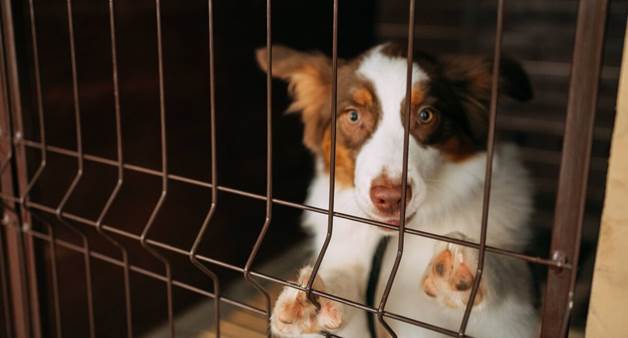To live in the animal shelter was to be immersed in a perpetual, frantic symphony. The music was composed of high-pitched barks, the low, resonant thrum of air conditioning, the relentless clatter of metal bowls, and the jarring, constant scrape of mop heads across concrete floors. For a dog like Echo, whose past was a tapestry of neglect and solitary fear, this sensory overload was not merely irritating—it was suffocating.
Echo was a handsome mix, a patchwork of tan and deep brown fur, built for speed and long runs, but currently, she was built only for stillness. She understood, with a painful, canine certainty, that the shelter was a place of waiting, a purgatory where genuine life was suspended. It was a holding pen, and her entire being was focused on one single, desperate goal: to escape.
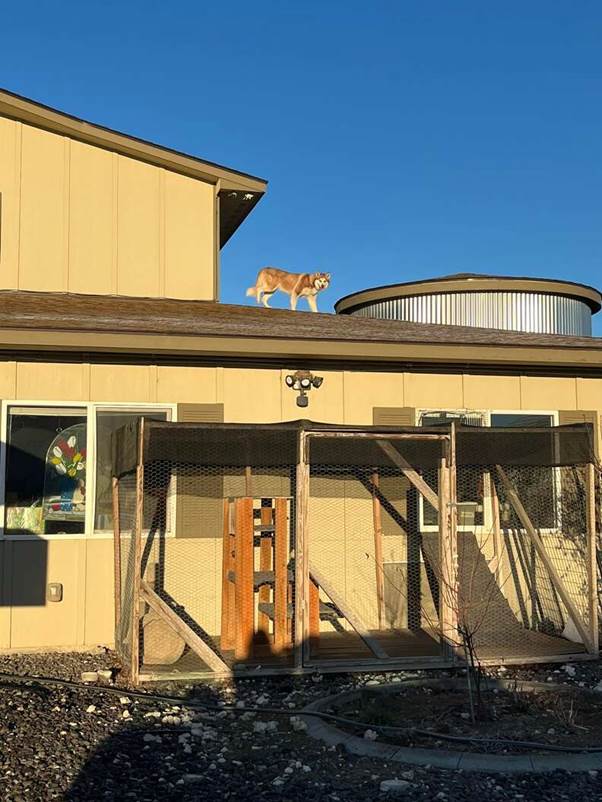
But her escape wasn’t about bolting for the woods or running wild on the highway. Her desperation wasn’t born of rebellion; it was born of a profound, soul-deep need for silence, for softness, and for the singular focus of a true home.
Echo’s kennel, though clean and well-maintained by the kind staff, felt like a cage built for a nervous breakdown. The concrete floor radiated a clinical coldness, and the chain-link walls offered no privacy, forcing her into constant, visual engagement with the chaos surrounding her. The dog directly across the aisle, a boisterous Labrador mix named Gus, treated every passing human as a potential lottery ticket, barking with deafening, relentless enthusiasm.
Echo didn’t bark. She employed a different strategy, one born from months of sheer misery: withdrawal.
She would press herself as close to the back wall as possible, her head low, her expressive, amber eyes fixed on the floor. She adopted the posture of a dog trying to become invisible, a shadow melting into the corner. Her ears, usually alert, were slightly pinned, and her floppy-eared, expressive face was permanently etched with a look of caution and anxiety.
This desperate tactic, ironically, worked against her. Visitors walked past, drawn to the extroverts like Gus or the playful puppies. Echo was quiet, but her quietness was misinterpreted. They saw a shy dog, a boring dog, or perhaps, worse, a dog with an unmanageable psychological problem. They missed the subtle, constant tremor running beneath her fur, the frantic, internal monologue of a creature desperate to escape the environment that was slowly consuming her spirit.
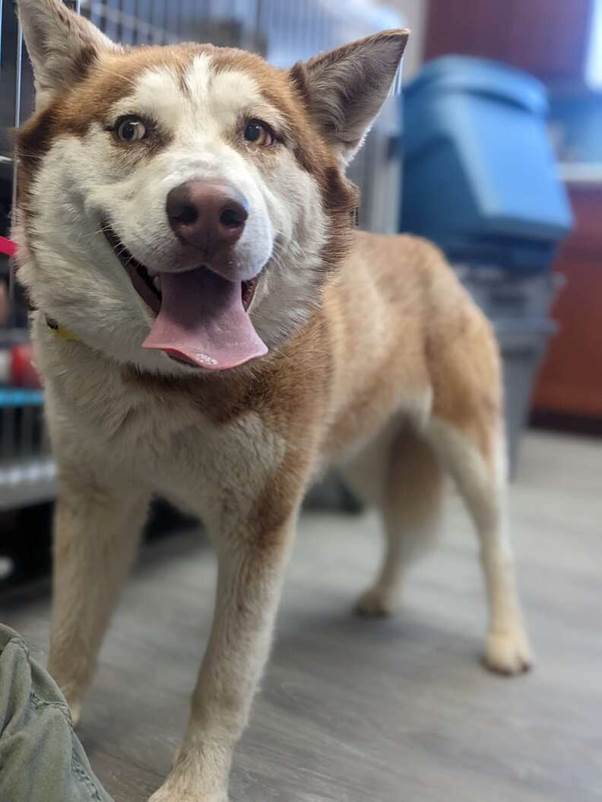
The staff knew better. Ben, a dedicated kennel technician, often found her standing near the latch of the gate, not aggressively pawing, but simply staring at it, as if trying to unlock the mechanism through sheer force of will.
“You’re too smart for this place, aren’t you, girl?” Ben would murmur, scratching her behind the ears. Echo would lean into the touch for a moment, then retreat. She couldn’t afford to invest in fleeting comforts; her entire emotional economy was budgeted toward the hope of final liberation.
Weeks blurred into months. The cycles of hope—when the adoption center was busy—and despair—when the place emptied out on quiet weeknights—began to wear her down. Echo was losing weight, not from lack of food, but from the ceaseless mental taxation of being on high alert, perpetually searching for the exit sign.
Her desperation peaked one Tuesday afternoon. A loud, sudden noise—a dropped stack of metal cages—sent a shockwave through the room. Gus began to howl. Another dog started to panic. Echo, unable to bear the cacophony, began to circle, rapidly pacing the perimeter of her kennel. Her movements weren’t destructive; they were a frantic, kinetic prayer for release. She was, quite literally, trying to pace her way out of the building.
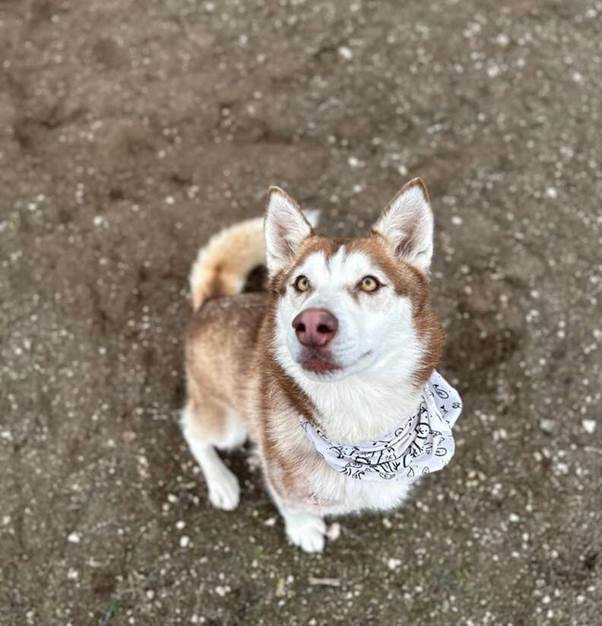
Just as she collapsed, exhausted, into her corner, a new visitor entered the section. Her name was Clara, a middle-aged woman looking for a companion to fill the void left by an older, beloved dog. Clara was exhausted by the noise of the front kennels and was searching for a quiet presence, a gentle soul. She possessed the rare gift of seeing beyond the noise.
She walked past Gus and his theatrics, past the adorable, tumbling puppies, and stopped right in front of Echo’s kennel.
Echo, depleted, didn’t move. She didn’t offer a tail wag, a whine, or even a glance. She was entirely given over to her misery. But Clara didn’t move either. She simply crouched down, her presence a quiet, non-demanding anchor.
Clara saw the anxious posture, yes, but she also saw the intelligence in the amber eyes, the clean definition of her bone structure, and the slight, almost imperceptible quiver of her breath. She didn’t see a problematic dog; she saw a dog that was desperately unhappy in her current circumstances. She saw a dog who was too much dog for a cage.
Clara spent the next ten minutes in silent communion with the dog. Finally, she slid a finger under the chain link. Echo hesitated, then, driven by an impulse stronger than her fear, she stretched out her nose and nudged the finger, a soft, almost apologetic pressure. It was the first small request she had made of a human in months.
That subtle nudge sealed her fate.
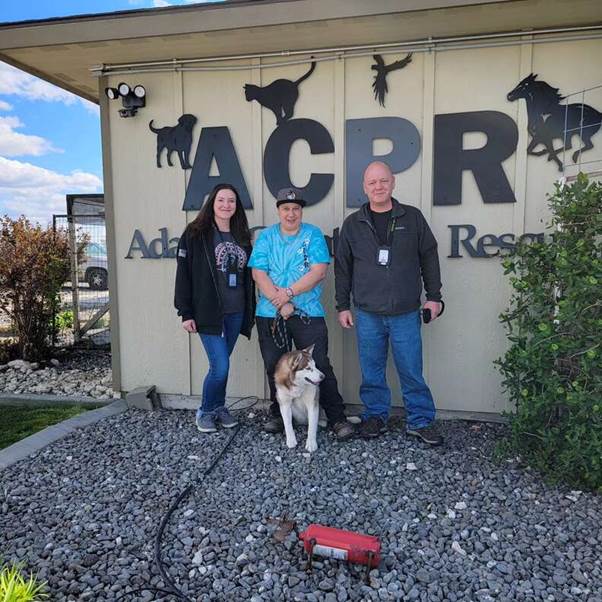
The paperwork took two hours, an eternity in the life of a dog whose fate was being decided. Echo watched the transaction from her kennel, sensing the change in Ben’s cheerful demeanor and the focused attention of Clara. When Ben finally opened her door, he clipped on a soft, new leash.
The walk through the shelter was a triumph of the will. Every dog barked, every volunteer smiled, but Echo kept her head low, focused only on the path before her—the path out.
Stepping out of the shelter doors was like stepping off a train in the middle of a dense forest. The noise vanished. The sudden, profound quiet of the parking lot was almost overwhelming.
The car ride was strange. Clara had placed a thick blanket on the back seat. Echo, exhausted from the tension of anticipation, laid down and allowed herself the first true, unmonitored rest she’d had in months. She didn’t look out the window. She didn’t pant. She just breathed, letting the smooth, consistent motion of the car wash away the memory of the metal bars. This was the escape. The liberation was not a frantic sprint, but a gentle, steady drive toward peace.
Clara’s apartment was everything the shelter was not: quiet, scented with warm coffee and old paper, and filled with soft surfaces. Echo walked in tentatively, sniffing the plush rug and the legs of the wooden chairs. There were no competing smells, no panicked barks, no echoing metal.
Clara didn’t push her. She simply gave Echo a bowl of fresh water, showed her a patch of sun by the window, and sat down quietly to read.
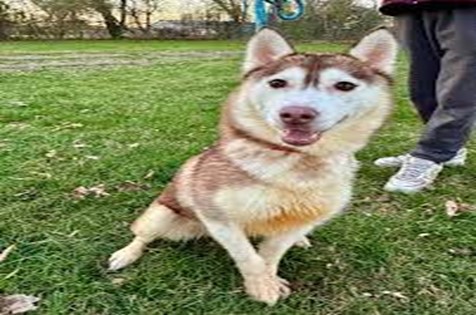
It was in that quiet room, with the low, rhythmic sound of Clara turning a page, that Echo finally gave up her desperation. She stopped looking for the door, stopped watching the corners, and slowly, cautiously, laid down. The plush, supportive texture of the blanket beneath her was an astonishing luxury.
She was home.
Weeks later, the transformation was complete. The anxious tremor was gone. Echo now had a confident, playful gait. She would follow Clara from room to room, no longer trying to disappear, but content to be a happy, visible fixture. She had the run of the furniture, often found draped across the most comfortable cushions, her head resting on a velvet pillow, her eyes closed in blissful surrender.
The look of desperation had vanished, replaced by a gentle smile—the look of a dog who finally understood what it meant to be safe. She had longed to escape the noise and chaos, and she had received her wish: a quiet, soft space where her only job was to be loved. For Echo, escape didn’t mean freedom from, but freedom to be—to be the calm, loving companion she was always meant to be.

